
Director: Asghar Farhadi
Wrtier: Asghar Farhadi,
Stars: Amir Jadidi Mohsen Tanabandeh
Summary: Rahim is in prison because of a debt he was unable to repay. During a two-day leave, he tries to convince his creditor to withdraw his complaint against the payment of part of the sum. But things don't go as planned.
A 2500 years old civilization in the background, a kind humble hero, and the social media, as Asghar Farhadi’s most demolishing asset for addressing the ever-existing issue of judgment, have gathered around to form Farhadi’s most complete film to date.
The initial shots do a perfect job entering the world of this film. Farhadi doesn’t have a lot of films with slow initial scenes. Let’s extract the essence of the film out of this scene. Rahim (played by Amir Jadidi) goes to the heart of Naghsh-e Rostam. The camera on the crane, curiously, follows him to the heart of the monument. Rahim climbs the stairs in the enclosed scaffolding. The low-angle camera, which is used to bold a character, records him climbing stairs. The higher Rahim goes, the more the scaffolding bars captivate him, and when he disappears completely, the title “Ghahreman[1]” appears on the screen
This is the story of a hero who is captivated more, the higher he goes. And as soon as he reaches the peak, he falls immediately. This is the story of the rise and fall of a hero named Rahim, who from the very beginning is linked to the tomb of Xerxes, which has the definition of hero in its name and is located in the heart of Kuh-e Rahmat[2]. As simple as going up and down in the stairs of this monument, overnight, a group brings him up to the summit, and later they push him down.
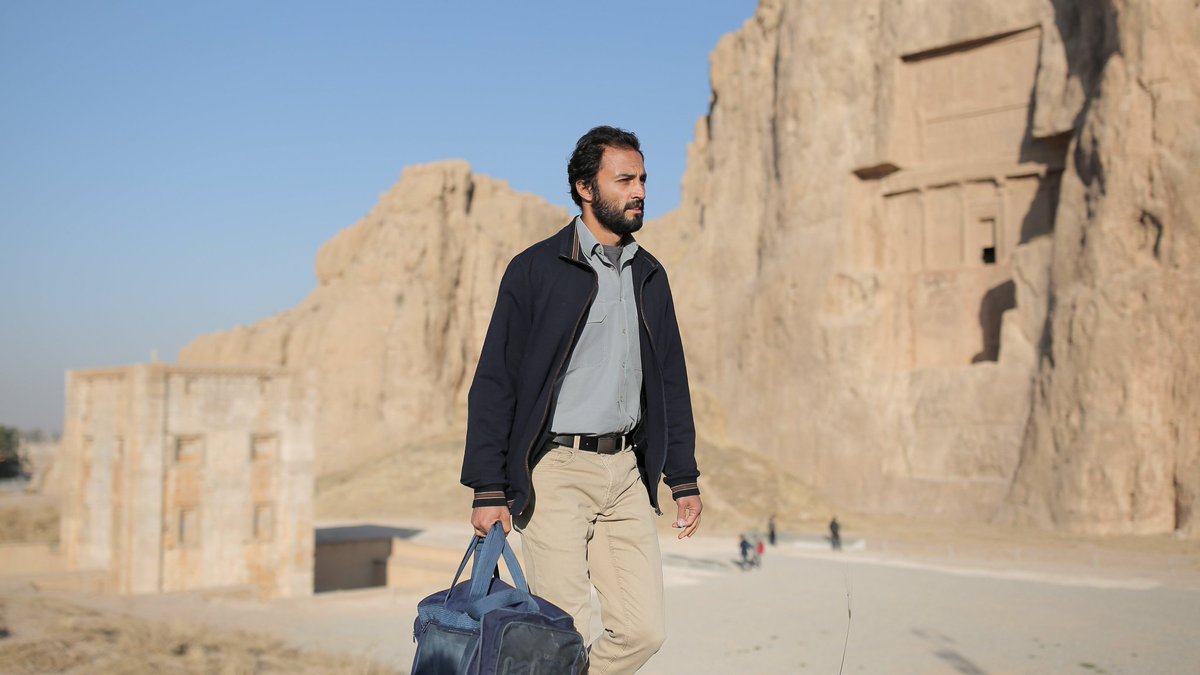
Further, details of the story will be divulged
Rahim, the protagonist, belongs to the lower class of society, with a simple and sincere mindset and a recurring smile on his face. He is the hero who is introduced to us at the beginning of the film. On behalf of the people within whom humanity has not yet died. We get to know him from his first important choice, because the best way to know one’s personality is through his choices. Rahim decides to return the gold that Farkhondeh has found, and eventually does so. Interestingly, the script for the character could have ended right here and the film could have finished.
But from this exact point, Farhadi has designed a path that has made the film his most explicit film. This explicitly means that this time, a system such as a prison becomes the first link in all of the subsequent cause-and-effects. It is the prison that pushes Rahim in continuing the path of the script. A path that extends the film’s conflict levels to one person vs. one system.
Rahim, who was previously assigned to repair and paint the damaged walls of the prison to make the space inside the prison more beautiful, is now being called in to change the public mind outside the prison. The prison, through its tool, which is the media, can distort whatever it wants, however it wants. Mr. Taheri, whose name depicts that he is supposed to purify[3] everything for his own benefit (or, to put it better, for the benefit of the prison), gives Rahim the necessary orientations. Rahim also, due to his incarceration and the fact that he was certain of his moral decision, agreed to play this game in the first place and his pre-introduced simplicity did not allow him to realize their hidden intentions (but he will later in the film).

Now, in front of media cameras, everything is viewed differently. Rahim shows up wearing a suit, something that isn’t his type; a suit that practically leads him to nothing but humiliation and anger. A suit similar to that of the prison warden. In front of the camera, on Mr. Taheri’s recommendation, he is forced to distort part of the reality, and instead of taking nozul, which is an illegal type of loan, he should even say that he has taken a loan. A loan that Rahim is not eligible to receive in this system. Because the banking system acts similarly to the prison system, naturally. When Rahim first enters the bank and explains the story of finding the bag of gold, it only causes the employees to be amazed, and finally the head of the bank ends the story with a sentence, “God bless you.” Rahim is a financial prisoner because the banking system does not recognize a person like Rahim to give loans to. This is how the system of bank has participated in the first step of Rahim’s entanglement. This would lead him to take nozul. Now his commitment to the missing coins, which proves that such a person was certainly eligible for a loan, is overshadowed by the banking system’s judgment that homeless people like Rahim are not valid of a loan. The strangeness of Rahim’s presence in the bank is just like the presence of Hojjat (in the movie “A Separation”) in the bank. After the airing of the television show, the component that has always been Asghar Farhadi’s concern, here with the help of the contemporary element of cyberspace, develops in its most intense form. From here onwards, Farhadi, who from the beginning, by keeping a first-person perspective (except for a few scenes that he breaks this perspective for a particular reason) has accompanied us with Rahim and has given us a general view of his intentions, now puts us in front of different judgments as if these judgments are mirrors; each of us replaces ourselves with the people who are judging Rahim.
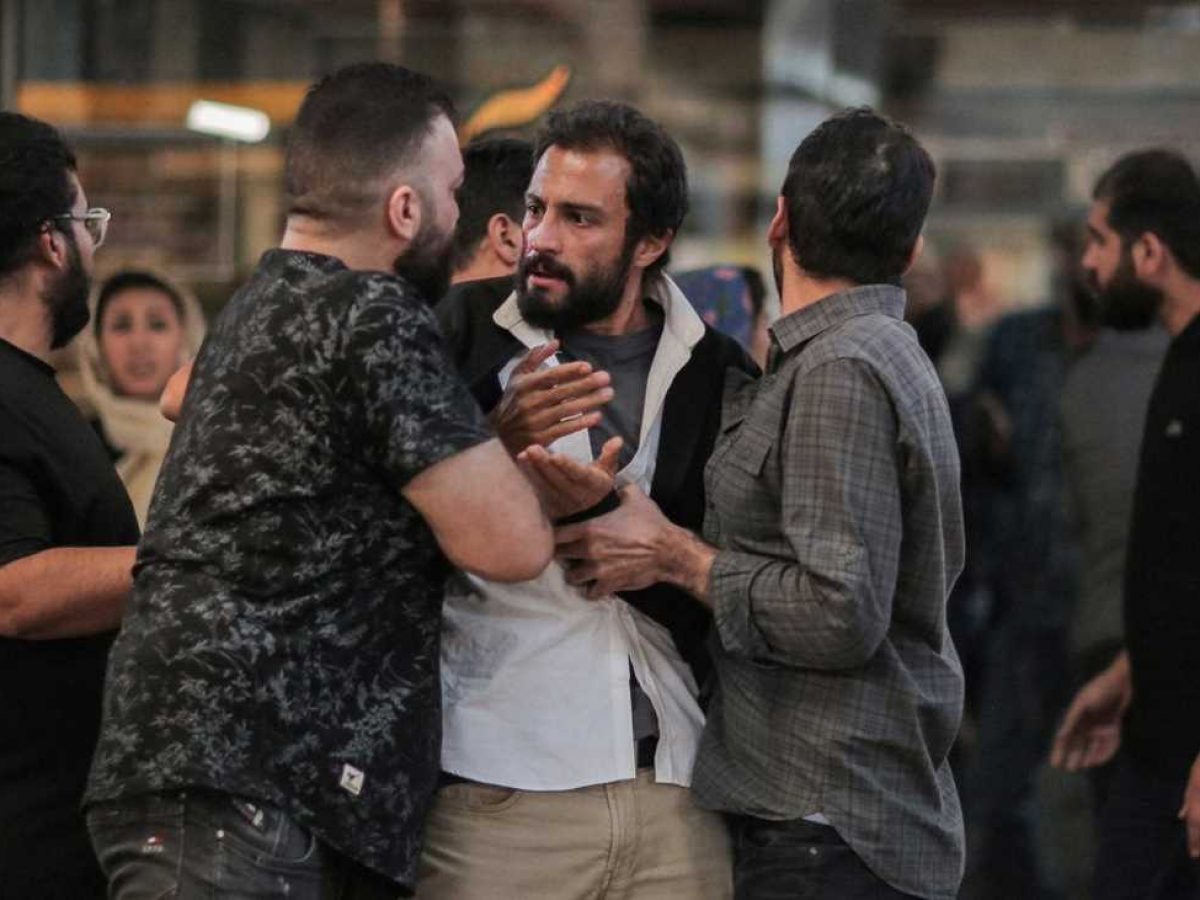
Sometimes we are his creditor, Bahram (read: Bahram Gur[4]), who destroys and humiliates Rahim from the very beginning, unaware of his intentions and the details of his life, including the fact that he has a girlfriend. He also accuses Rahim of saying “loan” instead of “nozul”, not considering the framework of media. In other words, he cannot even stand the fact that Rahim is being praised. Sometimes we are the prison inmates who without considering Rahim’s good deeds, expected him to make decisions in their favor even if it would endanger him.
Sometimes we’re the government employer and we base our judgment solely on cyberspace rumors. But most of us may think like Farkhondeh’s brother; He reads a newspaper headline and completely changes his judgment about Rahim. He no longer resents him and thinks of him as a hero. In the end, again, watching the film of Rahim fighting his creditor, he returns to his original position angrier than before. Interestingly, the identity of the woman who correctly stated the details of the bag is left for us to guess. We have to put the pieces of the puzzle together and make the judgment about whether she has stolen the bag or not. However, Rahim still does not call her a thief and believes she may have asked such questions from the jewelry store to make sure that the coins were genuine.
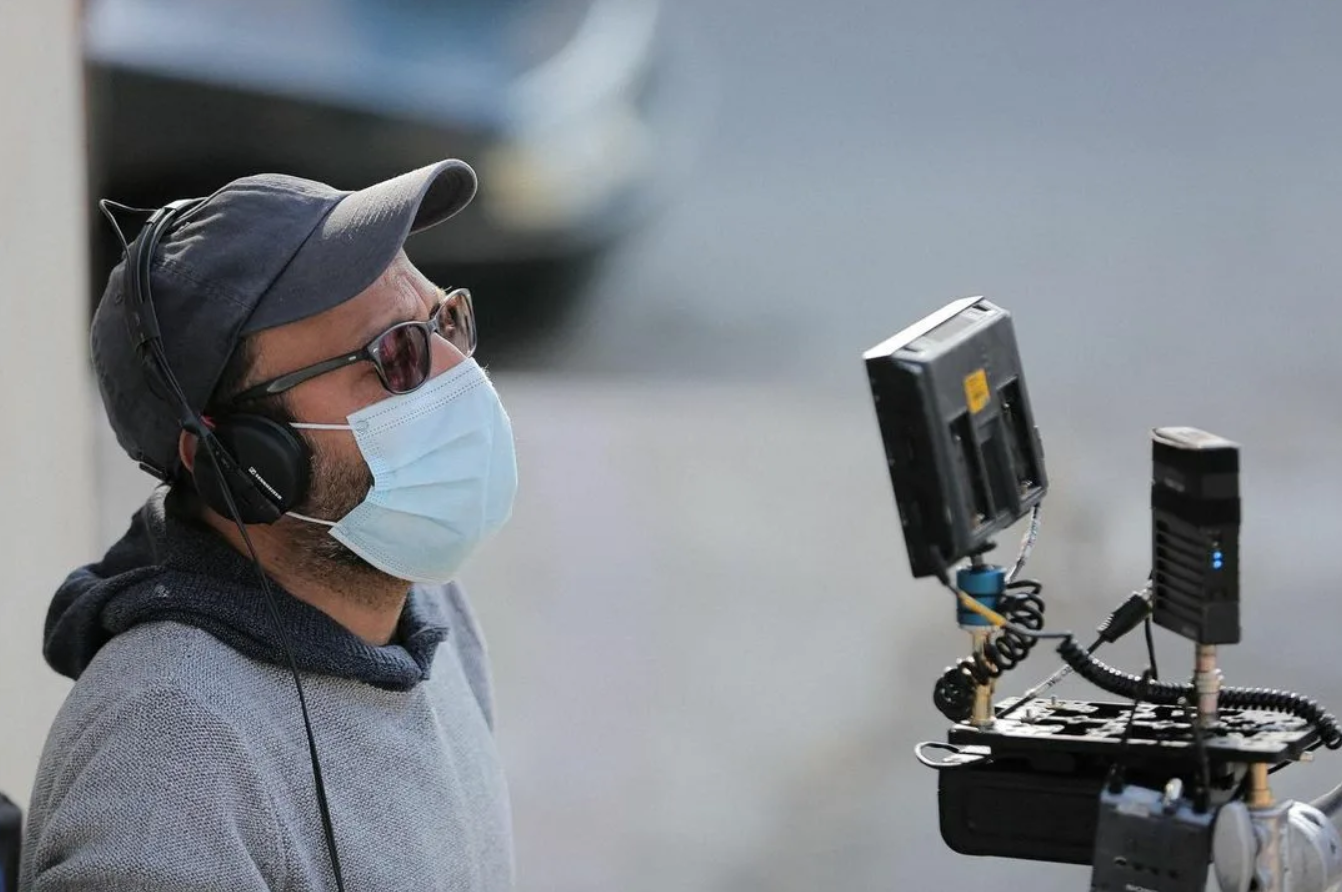
In many scenes, I see Rahim as Farhadi himself. Farhadi has always produced high-rated films and has received many awards, but still he is the victim of various judgments, especially in cyberspace, and he is constantly brought up and down in the public opinion. Let’s think of that scene in which Rahim’s show is being played on the prison TV as similar to one of the moments when Farhadi wins an award and we, like the prisoners, are watching him receive his award. This is where our contradictory and sometimes hidden reactions begin. One may rejoice to witness this event, and another (most likely one of the prisoners) may release the hatred within himself and send an SMS to the governor’s office, seeking to destroy Rahim. Farhadi, in Rahim’s disguise, considers himself as a victim in many situations, and professedly declares that how the media reflects on his words and actions is beyond his control and that of anyone else. At a time when many systems, such as the prison, can easily put ideas in people’s minds. But, instead of accusing such systems, all the accusations and judgments are directed at the person standing in front of the camera.
Media and the judgments through cyberspace, are astonishingly and sometimes unreasonably, making everything in today’s world as complex as possible. In such a way that Rahim, on the advice of the taxi driver, “had to” ask his girlfriend to come into the play to tell the employer that she was the woman who had lost her bag; a true reflection of what the prison system has done to him. Because the criterion of a system such as the government who is supposed to evaluate his eligibility for employment is to create such an atmosphere.

Naturally, the moment we see the dispute between Rahim and Bahram, we are actually witnessing the hidden anger produced in cyberspace with a direct impact on the victims of this judgment. The sound of the dulcimer in the background of this scene, in addition to inducing an impressive and striking contrast, constantly reminds us of our civilization of several thousand years, to which we are at the farthest distance today. People who are repairing the Naghsh-e-Rostam monument or people whose job is to bind exquisite old books and revive them, are the most unaware of repairing themselves.
But Rahim, from then on, attains an awareness whose generalization may be the only way of salvation. He must completely understand that the prison is more concerned with its own reputation than with Rahim’s interests. He realizes that as they make him a hero, they can simply deny his whole story with a phone call, and there’s nothing he can do about it, except close the door gently and keep quiet. The system, to protect its reputation, enters Rahim’s house and in addition to himself, also wants his son to take a part in this play. But at this very moment, Rahim becomes aware and does not allow the system to play him again. Hopefully, the most important observers of this play will remember this moral decision. These observers are the kids in the movie. Children are the most important observers in all of Farhadi’s films. They observe all the details of the behavior of their older generation. Sometimes they are even forced to participate in their play and, like Nader’s daughter in “A Separation”, lie against the law in their favor, like their father.
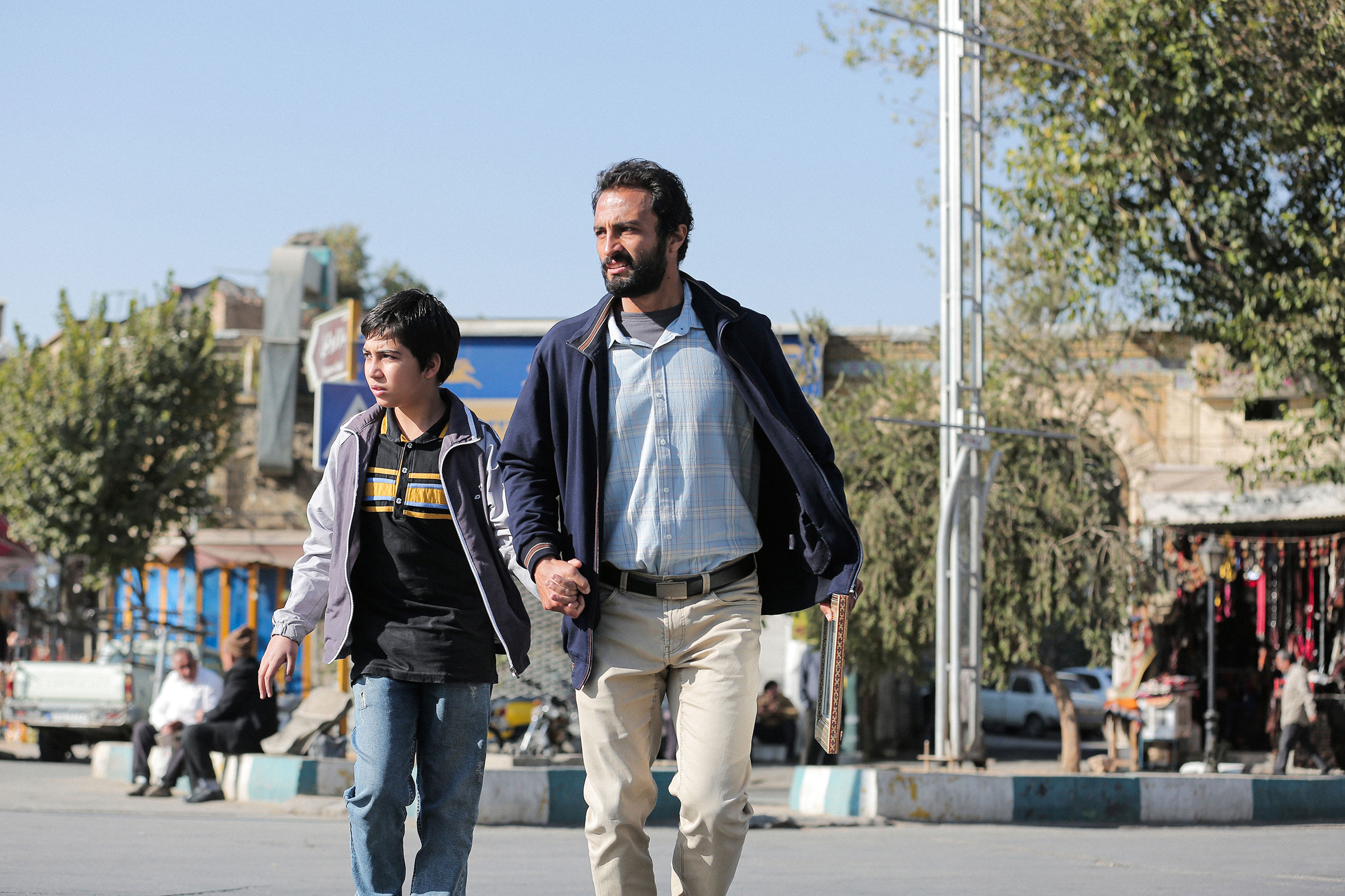
But here, Rahim takes his decision at home and in front of the eyes of these children, which is the most important aspect of it. Also the question “What does prison look like uncle?” effectively shows what is going on in the minds of these observant children. They witness everything and realize that despite the morality of their uncle’s choice, prison awaits them. This moral choice, although, may be the only right path.
Farhadi, unlike his previous films, considered a closed ending for this film, with the presence of the lovely hero. Let’s look at that corridor and entrance from Rahim’s point of view. Rahim, who could have sold the gold in the beginning and been released, has entered the darkness of the prison. It is as if he has returned to captivity while in inner liberation. In a society that demolishes its heroes, Rahim is supposed to take his reward in that dark corridor from the prisoner to whom he offers sweets. This prisoner is in a way reminiscent of the prisoner who was sentenced to death and Rahim gave him the money that had been raised for him in charity. He has encouragement in this captivity. First, because Farkhondeh and Siavash have understood his choice and will fight to preserve his reputation. The second is for us to accept a hero who was not accepted by the film community. We learn that judging anyone, no matter how or why is the scariest thing to do. Now there is another question: Where do we stand in this dilemma?
[1] Hero
[2] The mountain of mercy
[3] His last name means purification
[4] Bahram V, Gur also means grave
A Hero ending explained:
Bahram ultimately agrees to accept the money, which is less than the initial 70,000 Rahim gave, only to give him a chance to prove himself and repay the debt on a monthly basis.
Is the movie a hero a true story?
Although Farhadi has said in interviews that it “was not inspired by a specific news item,” the story of Mohammad Reza Shokri, a guy who returned a bundle of cash he found while on leave from a debtors’ prison in Shiraz, served as the inspiration for A Hero.



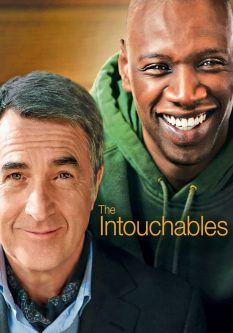

I want to buy this dvd any idea for a release date ?
Hello, please do you know who Is the actor Who plays mr. Taheri’s role? Thank you so much
Fantastic movie that explores issues of callous power in the face of someone else’s misery when a tiny bit of sympathy could have easily won. The media’s and social media’s part in this tragic story is handled well. Located in the city of Shiraz, which offers a highly intriguing cultural contrast to Tehran’s sprawling urban environment. Beautiful depiction of family life as they attempt to assist the tragedy